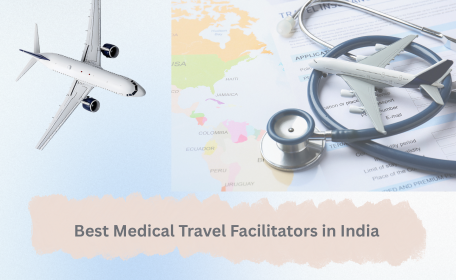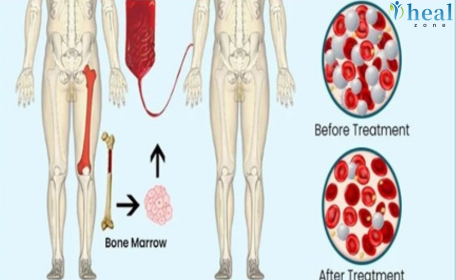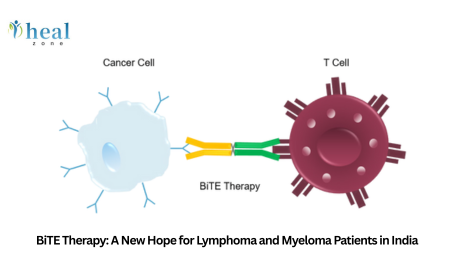What is Knee Arthroplasty and Who Needs It?
Knee arthroplasty is a surgical procedure that involves replacing the damaged or worn-out surfaces of the knee joint with artificial implants to relieve pain and restore mobility. It is commonly recommended for patients suffering from severe osteoarthritis, rheumatoid arthritis, or traumatic joint damage. Individuals who experience chronic knee pain, stiffness, and reduced range of motion that doesn't respond to non-surgical treatments are ideal candidates for knee replacement.
What Are the Types of Knee Arthroplasty?
There are several types of knee arthroplasty based on the extent of the damage and patient needs:
- Total Knee Replacement (TKR): Both sides of the knee joint are replaced.
- Partial (Unicompartmental) Knee Replacement: Only one part of the knee is replaced.
- Bilateral Knee Replacement: Both knees are replaced, either in one session or staged.
- Revision Knee Replacement: A second surgery to replace or repair a previous implant.
Each type has specific indications and is chosen based on age, activity level, and degree of joint deterioration.
What is the Detailed Treatment Protocol for Knee Arthroplasty?
The treatment protocol for knee arthroplasty involves several stages:
1. Pre-Surgical Stage:
- Clinical consultation and X-ray/MRI
- Blood tests and physical assessment
- Prehab: Strengthening exercises before surgery
2. Surgical Procedure:
- Performed under spinal or general anesthesia
- Damaged cartilage and bone are removed
- Implants (metal and plastic) are inserted
- Procedure lasts 1.5 to 2.5 hours
3. Post-Surgery & Recovery:
- Hospital stay: 3 to 5 days
- Physiotherapy begins 24–48 hours after surgery
- Full recovery in 6–12 weeks
What Are the Types of Devices and Materials Used in the Procedure?
Knee implants are made using durable materials like:
- Cobalt-Chromium Alloys
- Titanium and Titanium Alloys
- Polyethylene (plastic) for spacers
- Ceramic materials (less common)
The device types include:
- Fixed-bearing implants (standard)
- Mobile-bearing implants (greater flexibility)
- Posterior-stabilized implants (used in more active patients)
- Gender-specific implants (designed for anatomical variations)
The choice depends on patient age, activity level, and bone condition.
What Is the Cost Breakdown for Knee Arthroplasty in India?
The cost of knee arthroplasty in India is significantly lower than in Western countries, without compromising on quality. Below is a detailed cost breakdown for international patients:
|
Component |
Estimated Cost (USD) |
|
Initial Consultation & Tests |
$100 – $200 |
|
Diagnostic Imaging (X-ray/MRI) |
$100 – $300 |
|
Pre-Surgery Lab Tests |
$50 – $150 |
|
Hospital Admission |
$500 – $800 |
|
Surgeon Fees |
$800 – $1,200 |
|
Implant Cost |
$1,000 – $2,000 |
|
Operation Theatre Charges |
$500 – $800 |
|
Anesthesia & Medications |
$300 – $500 |
|
Physiotherapy & Rehabilitation |
$200 – $400 |
|
Post-Operative Follow-Up |
$100 – $200 |
Total Approximate Cost: $4,000 – $6,000
Note: Costs may vary depending on the city, hospital tier, and type of implant used.
Why Do International Patients Choose India for Knee Arthroplasty?
India has become a global hub for orthopedic procedures, especially for knee replacement surgeries, due to multiple factors:
- World-Class Infrastructure: Accredited hospitals with modern operating rooms and international hygiene standards
- Experienced Surgeons: Many trained in the UK, US, or Europe
- Affordable Costs: 70–90% lower than in Western countries
- No Wait Times: Quick scheduling and faster recovery protocols
- English-Speaking Medical Staff: No language barrier
- Tourism + Treatment: Patients often combine surgery with a vacation or spiritual retreat
These advantages make India the top choice for thousands of international patients seeking affordable yet high-quality knee arthroplasty.
Why Choose Healzone for Knee Arthroplasty in India?
Healzone offers a premium, end-to-end medical tourism experience, especially tailored for international patients. Here’s what sets it apart:
Global Patient Coordination: We handle visas, airport pickup, accommodation, translation, and post-surgery rehab.
- Partnered with Top Hospitals: Access to JCI and NABH accredited facilities.
- Expert Panel of Surgeons: Matched to your case for personalized care.
- Transparent Costing: No hidden charges; you get a clear cost sheet before arrival.
- Comprehensive Aftercare: Post-surgery physiotherapy and virtual follow-ups.
Healzone ensures a safe, smooth, and cost-effective journey to knee arthroplasty treatment in India.
What Are the Main Advantages and Benefits of Knee Arthroplasty?
Knee arthroplasty is a life-changing procedure for those suffering from debilitating joint conditions. Key advantages include:
- Pain Relief: Significantly reduces or eliminates chronic knee pain.
- Improved Mobility: Restores walking, climbing, and normal joint use.
- Enhanced Quality of Life: Allows patients to return to daily activities and hobbies.
- Long-Term Durability: Modern implants last 15–20+ years.
- Increased Confidence: Patients can walk without support or hesitation.
This makes knee replacement not just a physical upgrade, but a psychological and emotional one too.
What Are the Different Surgical Procedures Used in Knee Arthroplasty?
Knee arthroplasty procedures are tailored to the patient’s condition, age, and activity level. The three main surgical techniques used are:
1. Total Knee Replacement (TKR)
Involves removing damaged bone and cartilage from the entire knee joint and replacing it with a prosthesis. It is the most common method and offers excellent long-term outcomes.
2. Partial Knee Replacement (PKR)
Only the damaged portion of the knee is replaced, preserving healthy bone and tissue. This is ideal for patients with damage in a single compartment.
3. Minimally Invasive Surgery (MIS)
A newer technique involving smaller incisions, less trauma, and quicker recovery. Suitable only for select cases.
4. Robotic-Assisted Knee Replacement
Uses a robotic arm to assist in precise implant positioning. It enhances surgical accuracy but may increase cost slightly.
Each procedure is selected based on diagnostic findings, patient preference, and long-term prognosis.
What Is the Recovery Process and Timeline After Knee Arthroplasty?
Recovery from knee replacement varies by individual but typically follows these stages:
First Week (Hospital Stay):
- Patients are mobilized within 24 hours post-surgery.
- Physiotherapy begins to regain motion.
- Pain and infection are managed with medications.
Week 2–6:
- Walking support (walker/cane) is reduced gradually.
- Range of motion improves through daily exercises.
- Sutures or staples are removed in week 2.
Week 6–12:
- Patients return to most daily activities.
- Full weight-bearing and independent walking resume.
3 to 6 Months:
- Return to sports, long walks, and travel.
- Pain-free, stable knee function.
Full recovery for most patients occurs within 3 to 6 months, although this can extend to a year in older individuals or those with pre-existing conditions.
What Are the Potential Risks and Complications of Knee Arthroplasty?
Knee replacement is generally safe, but like any surgical procedure, it comes with some risks. Being informed helps patients recognize early warning signs and take preventive steps.
Common Risks:
- Infection: Especially around the surgical site
- Blood clots: In legs or lungs
- Implant loosening or wear
- Persistent pain or stiffness
Rare Complications:
- Nerve or blood vessel damage
- Allergic reaction to implant materials
- Deep joint infection requiring revision
Prevention:
- Antibiotics, blood thinners, and strict hygiene are used to reduce risks.
- Early movement and physiotherapy also minimize complications.
- Choosing a reputed hospital and adhering to aftercare instructions significantly lowers these risks.
What Is the Role of Physiotherapy and Rehabilitation After the Surgery?
Physiotherapy is essential for a successful outcome after knee arthroplasty. It helps:
- Restore joint movement
- Strengthen muscles
- Prevent stiffness
- Improve balance and confidence
Timeline of Rehab:
1. Days 1–3: Ankle pumps, heel slides, and assisted walking.
2. Weeks 2–4: Knee bends and muscle strengthening exercises.
3. Weeks 4–8: Climbing stairs, full walking, and core strengthening.
4. Months 2–6: Return to sports, dance, or physical labor if desired.
Supervised physical therapy is recommended for the first few weeks, followed by a home exercise plan.
How Can Patients Prepare for Knee Arthroplasty in India?
Preparation ensures a smoother surgery and recovery experience. Here’s a checklist for international patients:
Before Travel:
- Collect your medical history, reports, and imaging scans.
- Check visa, passport, and travel documents.
- Contact Healzone for a treatment itinerary and quotation.
Upon Arrival:
- Undergo initial tests and in-person consultation.
- Complete pre-operative assessments like ECG, blood tests, and anesthetic evaluation.
Pre-Surgery Preparation:
- Begin prehab exercises if advised.
- Follow diet restrictions and pre-surgery fasting.
- Arrange for personal support during early recovery.
Being well-prepared physically and mentally improves surgery success rates and speeds up recovery.
What Is the Long-Term Care Plan After a Knee Arthroplasty?
Long-term care is essential to maintain implant performance and prevent complications. After initial recovery, patients should follow a structured care plan that includes:
Lifestyle Modifications:
- Maintain a healthy weight to reduce stress on the implant.
- Avoid high-impact sports like running and jumping.
- Incorporate low-impact activities such as swimming, cycling, and walking.
Regular Follow-Ups:
- Annual or bi-annual reviews with your orthopedic team.
- X-rays may be performed every 1–2 years to check implant position.
Medication & Supplements:
- Continue calcium and vitamin D supplements if prescribed.
- Use anti-inflammatory medication only under supervision.
A proactive care plan ensures that your new knee continues to function well for decades.
How Long Do Knee Implants Last?
Modern knee implants are designed for durability and long-term function. On average:
- Traditional Implants: Last 15 to 20 years
- High-Performance Implants: May last up to 25 years
- Revision Surgery: May be needed eventually if the implant loosens or wears down
Longevity depends on:
- Patient's activity level
- Weight
- Surgical technique
- Implant material and brand
With proper care, over 90% of knee replacements remain functional after 15 years.
What Should International Patients Know Before Traveling for Surgery?
International patients must take a few extra steps to ensure a smooth and stress-free medical trip:
Visa Requirements:
- Apply for a Medical Visa to India (M-Visa).
- Healzone provides invitation letters to support your application.
Travel Preparation:
- Book round-trip flights after confirming your surgery date.
- Bring a travel companion or arrange caregiver support.
Documentation:
- Medical records, current prescriptions, allergy details.
- Passport, ID, and travel insurance.
Language and Currency:
- English is widely spoken.
- Most hospitals accept USD, EUR, and digital payments.
Patients should coordinate with Healzone for airport pickup, hotel booking, hospital appointments, and other logistics.
Why Is Medical Tourism in India the Best Option for Orthopedic Care?
India’s growing reputation in medical tourism, especially for orthopedic care like knee arthroplasty, is due to:
Affordability: 70–90% cheaper than the US/UK
Global Accreditations: JCI, NABH, and ISO-certified hospitals
Expert Surgeons: Often trained and certified abroad
Tourism Opportunities: Combine treatment with cultural exploration
No Wait Times: Quick appointments and surgeries
English-speaking staff: Eliminates language barriers
These factors, along with Healzone’s concierge services, make India the most efficient and patient-friendly destination for high-quality knee surgery.
Knee arthroplasty in India is a life-changing solution for patients suffering from chronic joint pain and immobility. With advanced surgical technology, highly skilled medical teams, and unmatched affordability, India stands out as the top medical tourism destination for orthopedic surgery.
Choosing Healzone ensures that every aspect of your journey—from airport pickup to post-op recovery—is handled with professionalism and care, giving you peace of mind and excellent clinical outcomes














